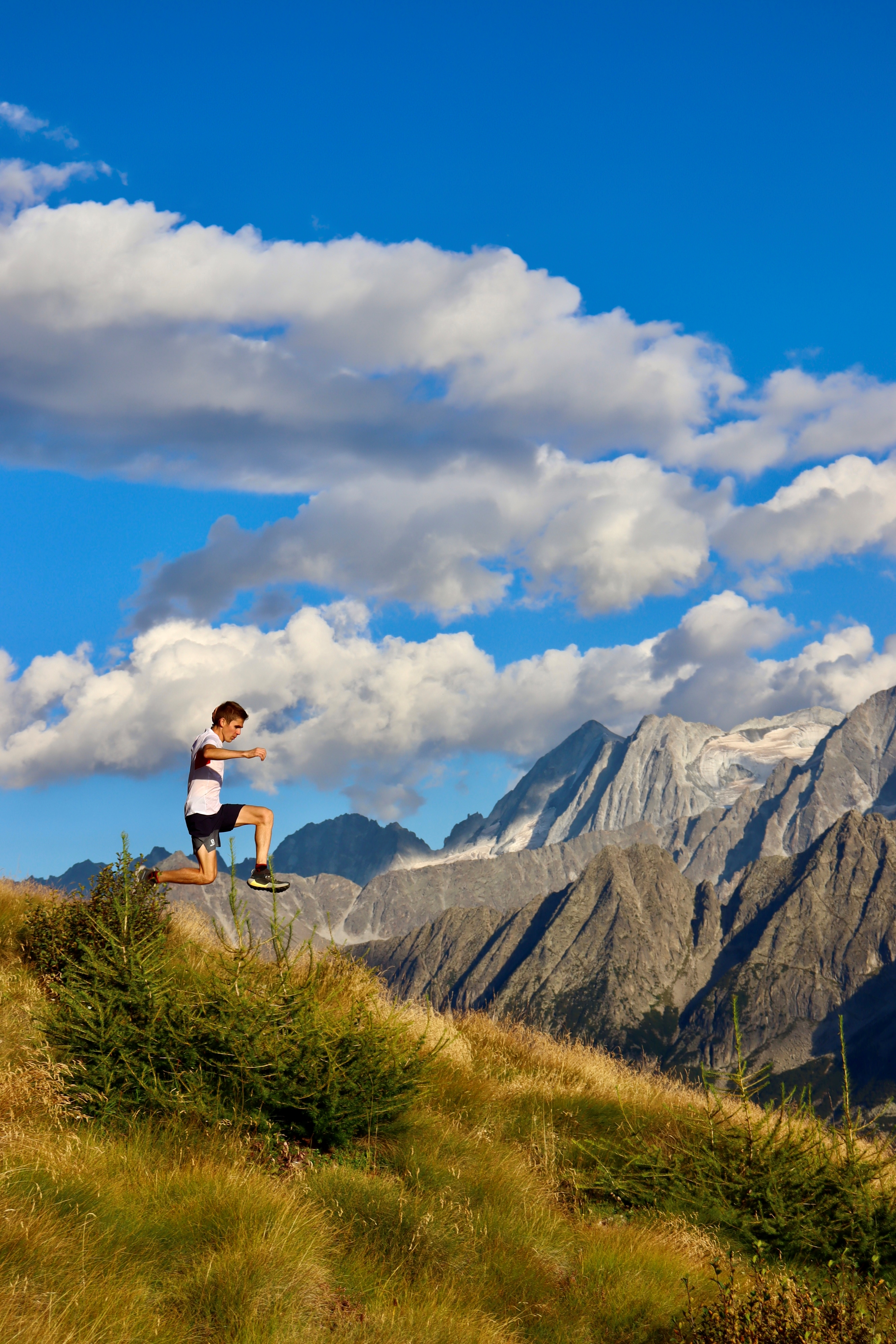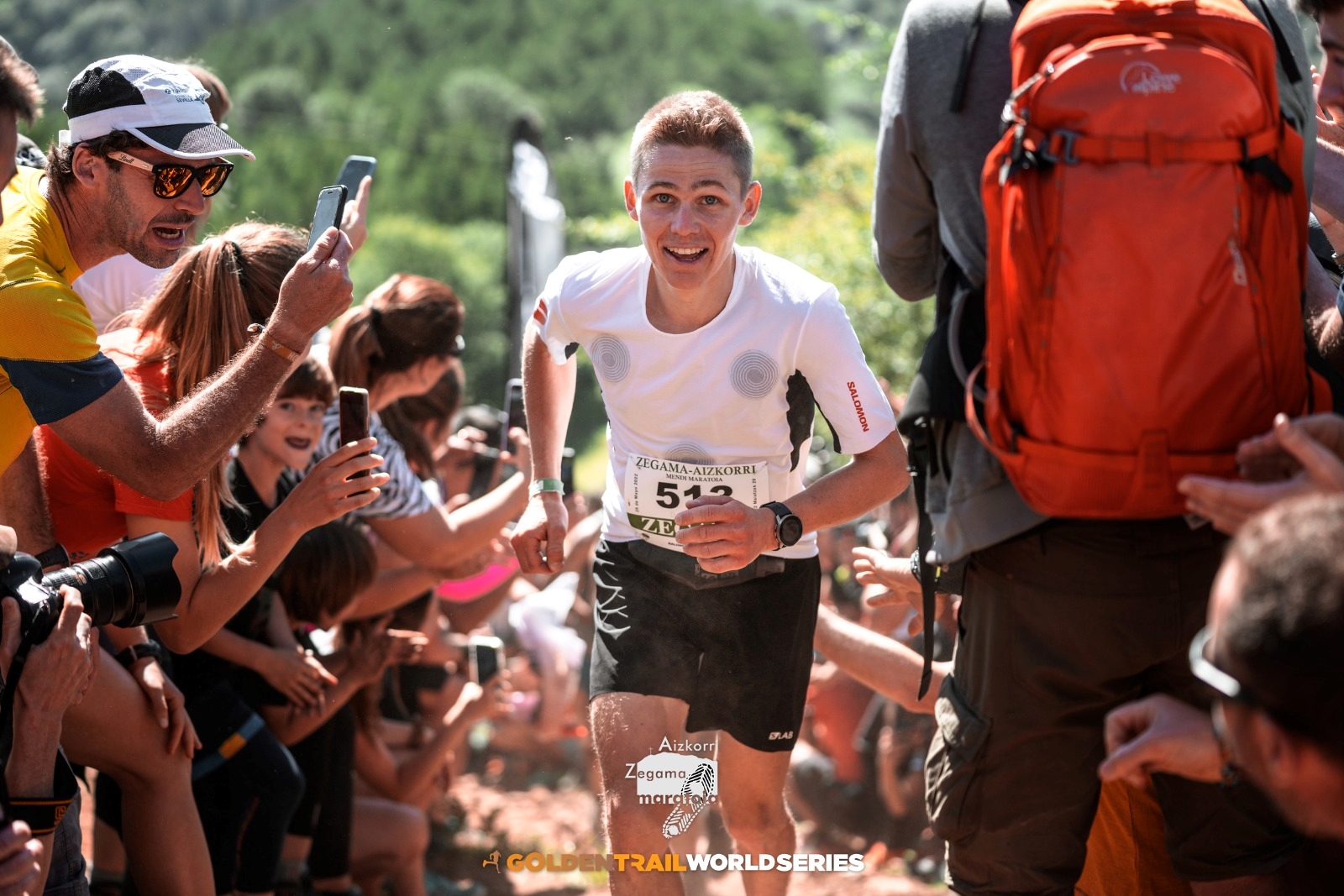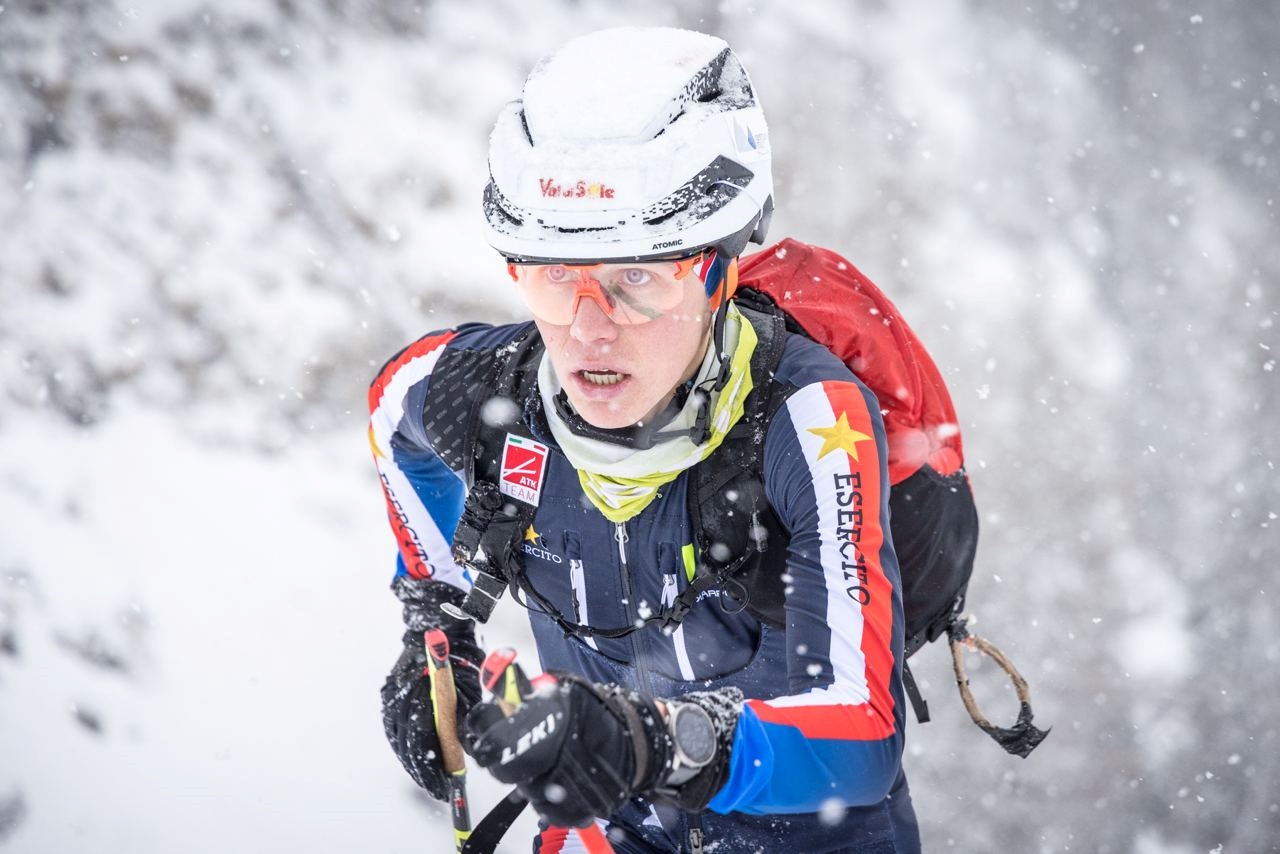Pro-Interview mit Davide Magnini

Davide Magnini ist ein italienischer Ausnahmeathlet. Er zählt sowohl im Skimountaineering als auch im Trailrunning zu den Weltbesten. Dabei geht er einfach nur seiner Leidenschaft nach.
Im Interview spricht Davide darüber, warum ihm die Ausübung von 2 Sportarten mental hilft, warum weniger manchmal mehr ist und welche Tipps er Amateursportlern mit auf den Weg gibt.
How do you manage to perform in skimountaineering AND trailrunning? Performing in both sports on top level is extremely difficult and challenging! How do you cope with the regeneration between the two seasons? Is there any special recommendation for "normal" sports people?
Davide: I grew up with the mountains and for me skimountaineering and trailrunning are the best ways to move fast in the mountains. I am an outdoor sport lawyer with deep passion for the sport, so I need it to feel alive everyday. With these two forms of sport, I can live my passion, live the mountains in all seasons and since they are different in use of muscles and effort, doing 2 season is not so hard in the end. They are almost the same in terms of metabolism, but the muscles work differently. And at the end of a longer winter season, you are tired and you are really fed up with dressing, going out in the cold with all the equipment, you just want to put on a pair of shoes and go out running. Same at the end of the summer season, when you really want to go back to skiing.
In my opinion, for the mind two seasons are helping. You switch to a different sport with different goals and it keeps the motivation high to go out for training every day. Of course you have to manage the effort for the body, because skimo and trailrunning are really energy demanding and tough sports. So you have to be able to manage your energy along the summer AND the winter season. The switch in between is just one or two weeks of easy trainings, doing whatever you want, enjoying good days out in the mountains.
Tips for normal sports people: love what you are doing without becoming too much stressed from what you are doing. Enjoy everyday you go out as long as you don’t feel too tired, because being tired means, that from this point your body can no longer deal with the required effort. Just go as long as you have the energy, the power and good and positive feelings about what you are doing. You have to be able to listen to your body, to your feelings. Don’t go too tired, don’t stress your body and your muscles too much. Especially at the end of a long summer trailrunning season, which is harder for the muscles than the winter season because in trailrunning you have a lot of impact with the ground. In winter, keep on running a little bit just to not lose the skills to run and the adaption of the muscles.

How do you organize your nutrition before and during skimo races? At what time do you have breakfast before the start, what do you eat, do you eat a gel short before the start, what kind of gels / iso do you prefer, do you drink coke during a race?
My nutrition for a skimo race is similar to a trailrun race; some carboloading the two or three days be-fore the race but not really high load of carbo. I am having lunch and supper and maybe some snack in the afternoon, since I am always training in the morning, I don’t have breakfast. I try to keep every meal really balanced with carbs, proteins and some fat. 3 hours before the start I am having some oats with honey, whole grain bread with a little bit of homemade jam and coconut oil on it or other really simple things. I avoid tea or coffee, since theanine and caffeine are bad for my digestion. I just drink some isotonic drink with hot water in the morning and right before the start some iso with a little bit of of carbohydrate like maltodextrin. I never drink Coke during the race because it has caffeine. I use gels and products from an Italian brand which uses natural raw materials from Italy with honey and a lot of plants, gels with honey from a French brand or gelèe royal. They have good products (for me) and something for recovery when I finish the race.

In your opinion, what is the biggest mistake of people doing trailrunning / skimountaineering? What are your observations on training errors? In your opinion, what is the key for success in perfor-mance?
In my opinion, the biggest mistake amateur athletes do is to keep on improving the quantity and the effort they are doing at the beginning when they approach a new sport. When starting a new sport, you see a daily improvement of skills and performances in the first period, because your body is adapting and becoming more familiar to the new sport. You can see really nice improvement day by day and this can go on for a long period, like 2 or 3 months, but if you keep on going the same way it will result in overtraining. For example: you start with 30 min/1 hour of training a day, you improve and do longer and longer trainings every day. After 1 or 2 months you don’t see any improvement anymore, because you just do high aerobic training or even worse, when you do higher base which is not your maximum but is not aerobic base and you are in the middle and do longer climb at middle base this is really effort demanding and hard to recover. If you train like this for many days together, you can easily go in over-training, and I see a lot of amateur people doing this. They don’t do specific training like intervals, long and really slow base training. You have to put all the training, necessary to improve your level, into your schedule.
I don’t think that I am really successful at the moment. Being really really stable in the top of the world level in skimo or trailrunnig is really hard, so everyone is going through up and deep low valley in shape. In my opinion, the key to success is to know your body, your limits and to be able to listen to your body even if your mind is pushing you to go out another time or to do a little bit more. Sometimes it’s better to do a little bit less and just really feel your body and your feelings. And don’t forget to also train your mind.